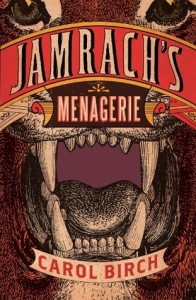
Johannes Gensfleisch zur Laden zum Gutenberg made after his death. From wikipedia.
This week I put another nail into the written word when I begrudgingly embraced digital media in my capacity as a LeftLion foot soldier. Now we have our new website (e.g. something of this century) we are being encouraged to include video clips as part of articles. I can see the benefit of this with regards to music journalism but I’m still not sold as far as literature is concerned. Yes, clips of authors reading is useful as you get to hear large passages from books, but let’s be honest, after months hovelled away typing, they’re not always the most charismatic of people. That’s why they choose the detachment afforded by words. Poetry on the other hand is something that lends itself to the ear as you get the pauses and rhythms, the weighted syllables of each line, and particularly with performance poetry, personality and content are inseparable. Just see Stickman Higgins or Miggy Angel perform if you don’t believe me.
I’m not a big fan of this new move for two reasons; time and quality. Reviewing literature you spend a long time reading or going to book launches. You then type up the words. These are then uploaded to the website. Then you spend a few hours sourcing images and resizing them in photoshop. It’s a long process. For example, our ‘sell images’ – the big ones we use for featured articles, are 510 x 200 pixels. They’re not that easy to come by online, particularly as authors aren’t the kind of people to plaster their mug everywhere. It is a profession of silence not shouting. Now we’re uploading video content you have to film it, upload it to the LeftLion TV Youtube channel – which takes ages, then embed the video online and add more tags to the extra content. Now imagine all of your subs doing the same thing except they send you video links via yousendit or dropbox, do you know how long it takes to download a 5 minute video via these services when you’re using the freebie accounts? But that’s nothing on the time spent trying to arrange to meet one of the many staff who share this one treasured item. We could of course put in for an arts council grant for more stock but what time do you have to fill out one of these when you’ve got to hand over the batten outside McDonalds at 9pm?
If this is not enough, you eventually begin to obsess about the quality of these recordings (I’m not at this stage yet, ha!) So you spend ages finding suitable software to edit down the clips. Oh, and have I mentioned the offence these recordings can lead to and the emails you now have to respond to, such as, ‘why didn’t you use the clip of me reading when you recorded everyone else, don’t you like my work?’, or ‘why did you use a clip of me reading? I sound stupid, take it down. Did my hair look alright?’ Ok, so this hasn’t happened yet, but give it time.
All of which takes away from the very thing you love most, the crafting of words (tags and embedding codes are not words. It’s like calling a data inputter a mathematical novelist). Now the video camera does your job for you, it becomes the silent witness. Joe Public can make their own minds up about whether the said author is good or not. Your opinion no longer matters. Now your articles are becoming shorter to accommodate the clips which could be seen as the sharpening of thoughts (a Twitter argument) or dumbing down (a Twitter argument). The devil may very well be in the detail but that detail is getting smaller and further away from the pen. I, you, are making this so. The medium is the message.

